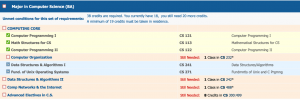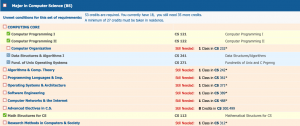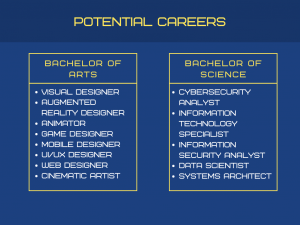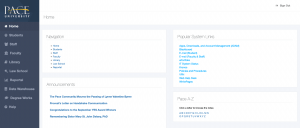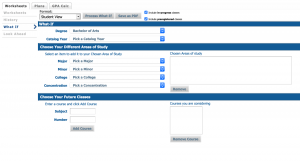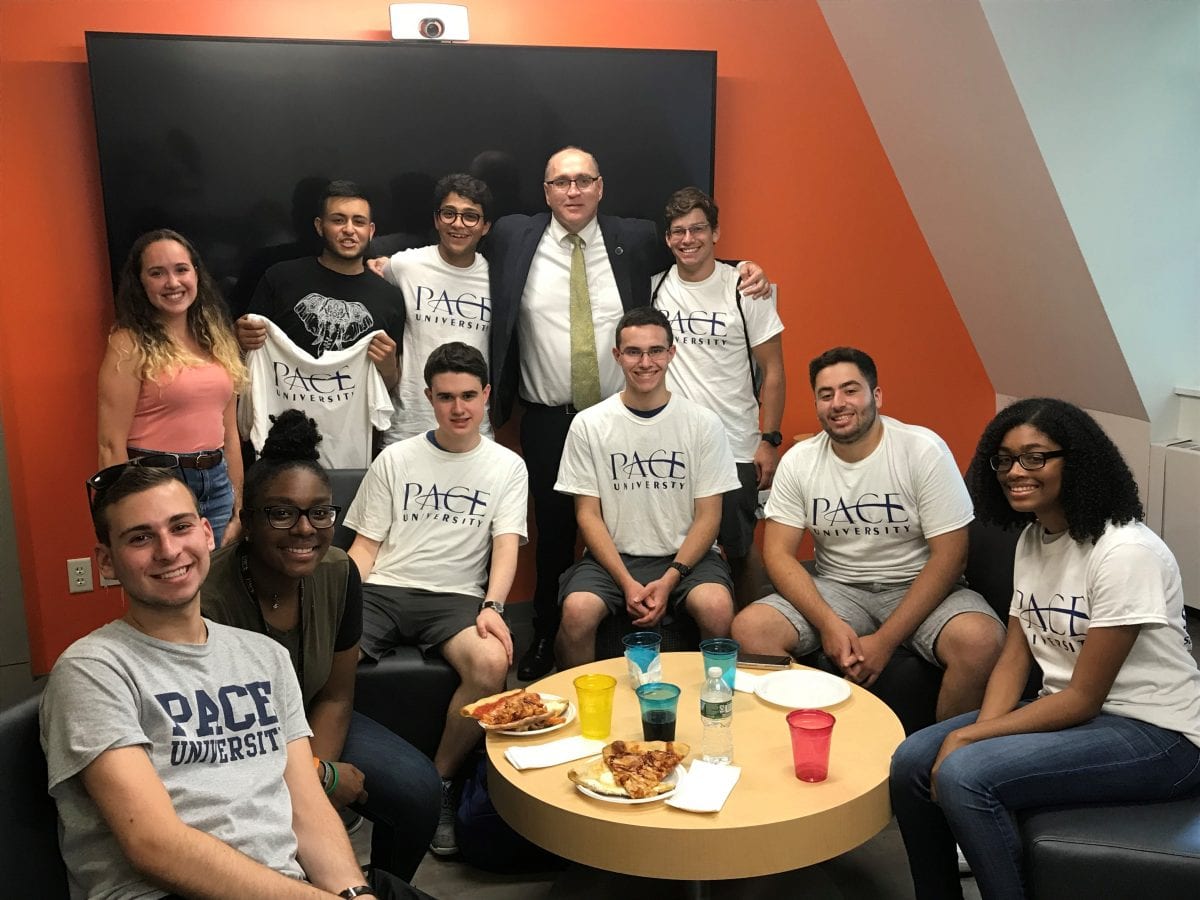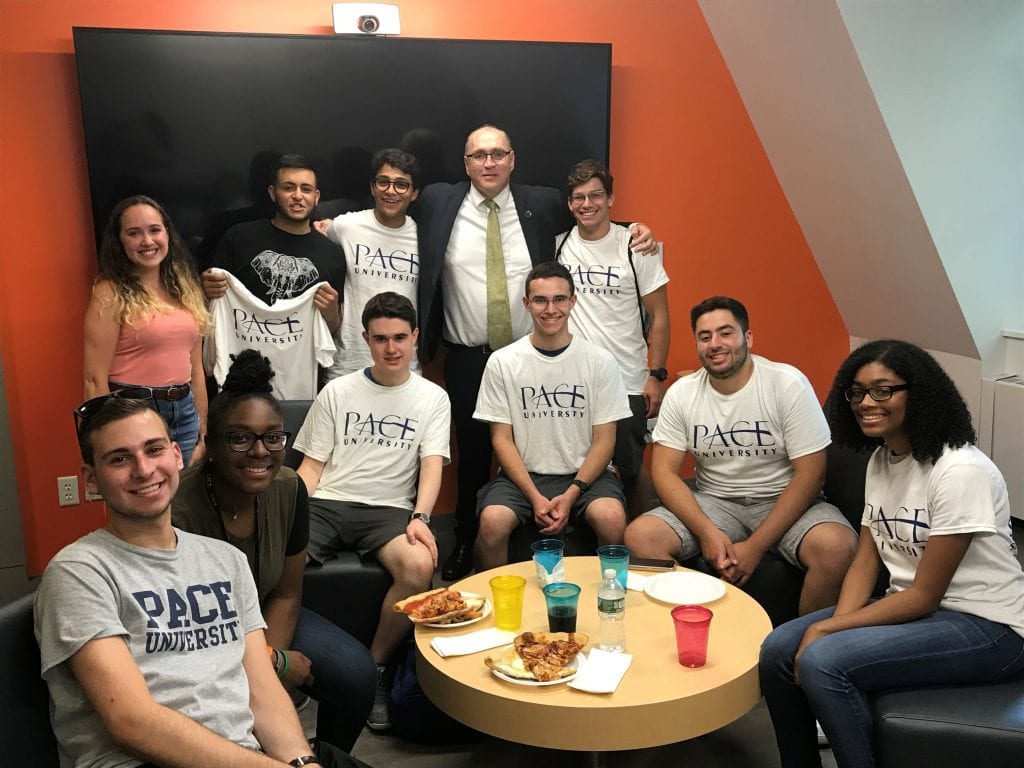Congrats! After months or even years of debating, you’ve finally decided on majoring in Computer Science. The decision’s been made, and you’re completely set on your path as a Seidenberg student. Or so you think. Although you have decided on being a CS major, there’s still one pesky decision to be made – which degree in Computer Science is best for you: a BA or a BS? At other colleges, you may only have one option, but here at Pace University, we have both, which in some ways makes things a bit more difficult. So, before you go ahead and decide here are a couple things you should know.
Without even comparing the exact course requirements of both degrees, here is a general idea of their key differences.
The major difference between a BA and a BS in Computer Science is that a BA has an incorporated minor, whereas a BS does not, meaning that you have to declare a minor in order to complete your BA. On the other hand, for a BS in Computer Science, you don’t need to declare a minor (but you can if you want to!). Just note that doing so with a BS may take more time to complete because you have more CS related courses to complete than a BA. Below is a quick comparison between the number of computer science classes you’d have to take for a BA and a BS.
Computer Science Courses (BA vs. BS)
Bachelor of Arts
Bachelor of Science
Note: This is a screenshot of Degree Works from my Pace Portal. The green checkmarks indicate what’s been completed, the blue shows what’s in progress, and the empty checkboxes show what is neither completed nor in progress.
Just like it’s easier to add a minor, it is also easier to double major with a BA in Computer Science. That’s because with a BA, you’re more likely to have an overlap between the classes needed to fulfill your course requirements. Also, double majoring with a BA is generally less stressful than double majoring with a BS. Although it is possible to do so with a BS, be aware that classes for BS majors are typically more demanding, meaning that you may have little room for interests outside of your studies.
Note: A double major and a dual degree are actually two different things. Double majoring means studying two majors of the same degree. For example, studying for a Bachelor of Arts in both Computer Science and Creative Writing is considered double majoring. On the other hand, a dual degree means pursuing two majors for two separate degrees. Studying for a BS in Computer Science and a BA in Creative Writing is considered a dual degree, meaning that when you graduate, you’ll receive two different degrees instead of one. An easy way to remember the difference between the two is that double majoring means two majors of the same degree and a dual degree means two majors of the opposite degree.
Majoring with a BS in Computer Science is better if you want a more technical job. If you want a job that’s more creative, then pursuing a BA may be better for you. Here is a list of the type of jobs you can get with either degree.
Note: Don’t be discouraged if you’re interested in a BA but are drawn to any of the jobs that fall under the BS category. When it comes down to the type of degree you have, the work that you do outside of that may have more weight. If you’ve completed any projects that lean more towards the technical side, be sure to add that to your resume. That will show that you have the skills to do beyond what you’ve learned in school. The same goes for a BS. If you have a BS but are interested in any of the jobs that fall under the BA category, try to do more creative projects and add that to your resume.
Weigh Your Options with Degree Works
So, what is Degree Works? Degree Works shows you your current major and/or minors, if you have any. The great thing about Degree Works is that it has a “what-if” section that allows you to see the course requirements and credits needed for any other majors or minors you may be interested in. If you’re trying to decide between a BA and a BS in Computer Science or any other degree, Degree Works is perfect for weighing your options. If you already know how to access Degree Works, feel free to skip this portion.
To access Degree Works login to Pace Portal with your Pace ID and password. Once you’ve logged in, select Degree Works at the bottom left of the screen to be redirected to the system.
At the top of this new page, you’ll see your degree, college, major, and minor on the right, and below that you’ll see the requirements for your current major, along with credits you need and credits you’ve already completed.
Time to test out the “what-if” portion. To the left under the worksheets tab you should see the “what-if” tab. Select that, and you’ll see this.
To compare the requirements for a BA and a BS in Computer Science you must select a degree (one of the two) and a catalog year, along with filling in Computer Science for your major and Seidenberg for your college. Splitting your screen in two can make the comparison process easier. The process may be different for Mac and Windows users.
The Takeaway
It’s important to remember that this is a decision that you and only you can make. It’s easy to get caught up in what everyone else is doing and what your family wants for you, but to make a decision based on the opinions of others is a disservice to yourself. If you choose something you never wanted to do and change your mind later, you might delay the time it takes you to graduate. When it comes down to deciding, try speaking with your advisor. Doing so can help you weigh your options and choose something that works best for you. If you don’t know who your advisor is, try using degree works to find their name and email.
Follow us on social media for updates!




